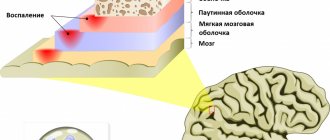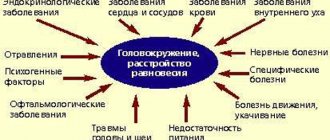Weather-sensitive people often know at what atmospheric pressure their headaches occur and how best to deal with the symptom. At the same time, only a few pay attention to the prevention of the condition. Although it will not help to completely get rid of unpleasant manifestations, it can significantly improve your well-being during difficult periods. A sharp change in atmospheric pressure indicators is fraught with the appearance of characteristic signs even in those people who usually do not react to weather changes. If you don't know how to act in such situations, you can lose your ability to work for several hours or even days.
Migraine and weather sensitivity
Medicine has not yet officially introduced such a diagnosis as “meteosensitivity”, but the presence of the human body’s reaction to changing weather conditions has been scientifically confirmed.
Initially, the reasons for the development of the condition were attributed to old age and weak immunity. For some time it was even considered one of the triggers of migraines, because headache is one of the main symptoms of the problem. Over time, experts have added to the list of provoking factors.
Dependence on the weather, which manifests itself in the form of headaches, can arise for a number of reasons:
- heredity - characteristic of 10% of all cases, usually manifests itself through the female line;
- decreased vascular functionality - patients with vegetative-vascular dystonia and pathology of blood channels account for about 40% of cases of the disease;
- Diseases accumulated over the years of life are considered the cause of weather dependence in 50% of situations. Of particular risk are hypertension or hypotension, vascular atherosclerosis, obesity, diabetes mellitus, chronic respiratory diseases;
- problems during pregnancy and childbirth lead to weather dependence in children. Attention should be paid to babies with a history of prematurity, birth injuries, fetal hypoxia, or difficult maternal pregnancy.
You will learn more about cephalalgia during pregnancy from this article.
Changes in atmospheric pressure occur constantly due to the emergence and movement of cyclones and anticyclones. As a result, air temperature changes, precipitation occurs, and wind direction changes. Normally, the physical indicator is 760 mm. rt. Art., but it may vary depending on the area. More important is the rate of change. Even if a sharp jump or decline occurs within 15-20 units, this greatly affects the condition of a weather-sensitive person.
The influence of atmospheric pressure on well-being
It is difficult to say unequivocally what type of indicator causes a headache. The negative impact of high atmospheric pressure manifests itself sharply and clearly, but a decrease in numbers below normal can become a source of problems. With sharp changes in data, characteristic symptoms are observed in a third of the world's population.
The severity of the reaction to atmospheric pressure is assigned one of the following degrees:
- I (meteosensitivity) – mild, characterized by malaise that does not lead to a decrease in performance and quality of life;
- II (meteor dependence) – even minor changes in the atmosphere are fraught with serious disruptions in the body’s functioning. Possible heart rhythm disturbances, inability to do usual activities;
- III (meteopathy) is the most severe scenario of the disease, which leads to disability and requires professional medical care.
Low atmospheric pressure is characteristic of increased temperature and humidity, precipitation and cloudiness. The processes are accompanied by a decrease in the volume of oxygen in the air, which leads to disruptions in the functioning of the circulatory system. If the drop in indicators occurs sharply, weather-sensitive people experience difficulty breathing, severe headache, shortness of breath and weakness, and diarrhea. The clinical picture is more pronounced in hypotensive patients.
High pressure is typical for clear weather without wind. The combination of these factors leads to an increase in the volume of harmful substances in the air. Patients note a deterioration in their general condition, headaches, decreased performance, and discomfort in the heart. The influence of high atmospheric pressure has the greatest impact on the condition of hypertensive patients, asthmatics, and allergy sufferers. Against this background, weather-sensitive people's immunity decreases, and the risk of exacerbation of chronic diseases and the development of infectious diseases increases.
Why do you get headaches when the weather changes?
The constant movement of cyclones and anticyclones leads to systematic changes in weather conditions
conditions. If all this happens smoothly and gradually, the negative response of the sensitive body will be minimal. This type of addiction is permanent. Its severity may weaken with specialized prevention, but it will not be possible to completely get rid of the disease.
Causes and characteristics of headaches when the weather changes:
- sudden cold snap - a decrease in temperature by 12 degrees or more leads to a deterioration in a person’s general well-being. The colder it was initially (for example, below 0°C), the more violent the body’s manifestations will be. The hardest time is for people with a history of heart attack, stroke, or heart or vascular disease. To avoid problems, on the eve of the event you should avoid salty foods and significant mental and physical stress;
- snowfall - for 70% of people this phenomenon contributes to a surge of energy, for 30% a headache begins. At risk are patients with vegetative-vascular dystonia. If you do not take care of vascular medications, products based on succinic acid, eleutherococcus or ginseng in advance, you may experience cephalalgia, nausea and dizziness;
- wind is a difficult time for children under 3 years of age and women with a history of migraines. The latter is recommended to mix lemon, flower honey and nut oil in equal proportions and take several times a day in small portions. On windy days, asthmatics feel good - they no longer experience breathing problems;
- complete calm - the peculiarities of atmospheric pressure during this period lead to a feeling of anxiety in people over 45 years of age, especially women. This is explained by changes in hormonal levels and increased concentrations of harmful substances in stagnant air. Using a ventilator may provide relief;
You will learn more about the effect of menopause on the occurrence of cephalalgia in different situations from this article.
- extreme heat - under the influence of high temperatures, blood vessels dilate, blood pressure drops, and blood supply to organs and systems is disrupted. If there is high humidity or strong wind outside, even healthy people will feel discomfort.
A single appearance of symptoms does not indicate weather dependence, but may be a signal from the body. Perhaps some malfunctions occurred in it, the result of which is not yet obvious. It is better not to wait for the problem to recur and undergo a preventive examination. It would not be superfluous to carry out the prevention indicated for meteosensitivity.
Why does my head hurt before it rains?
Rainy weather is accompanied by a decrease in atmospheric pressure. Sudden changes in environmental conditions are tolerated especially poorly by weather-sensitive people.
Persons with impaired intracranial pressure suffer from severe headaches. Depending on their individual characteristics, they get headaches before or during rain. Moreover, the sensations are pronounced, bursting, they do not allow you to concentrate on performing your usual actions. Any active movements lead to increased symptoms.
Why does my head hurt before a thunderstorm?
Even people who don't suffer from weather-related headaches can feel a storm approaching. This is due to changes in the chemical composition of the air and an increase in the electromagnetic field in the atmosphere.
Signs of deterioration in well-being are most pronounced in people with an unstable psyche and women during menopause.
There is no way to escape from the condition; you need to wait it out. According to scientists, this is easier to do underground (in a basement, subway, or passage).
Why does arrhythmia sometimes worsen due to weather changes?
Despite the fact that a healthy person does not pay attention to changes in the weather, people with cardiovascular diseases react quite sharply to temperature changes. This is explained by a violation of the adaptive mechanism: chronic diseases of the heart and blood vessels weaken the body’s ability to adapt to changing environmental conditions. How does this happen?
For example, when the temperature rises (as happens in the summer heat), the vessels dilate, blood flows to the tissues and organs, which causes additional stress on the heart. Blood pressure may drop, causing symptoms such as dizziness, blurred vision, shortness of breath, and cold sweats. On hot days, people with chronic heart diseases, for example, those suffering from arrhythmia, are advised to spend as little time as possible outside, reduce physical activity, and drink more.
Cold also has a negative effect on cores. Vasoconstriction increases the load on the heart muscle, and blood pressure rises. If the vascular tissue is weak (with atherosclerosis), there is a high risk of vessel rupture, aneurysm, heart attack or stroke.
But a much greater risk is created by self-hypnosis: if a person believes that weather anomalies affect his health, the level of stress increases significantly. The heartbeat increases, the arrhythmia worsens. Its main symptoms appear:
- feeling of “interruptions” in the chest;
- chest pain;
- dyspnea;
- dizziness;
- loss of consciousness.
Taking natural sedatives and calm, deep breathing helps relieve anxiety. But in order to keep arrhythmia under control, it is necessary to undergo regular examinations with a cardiologist. The doctor will develop recommendations that will help weather-sensitive people cope with magnetic storms and other anomalies. Their influence can be compensated with the help of healthy lifestyle rules and medications.
What to do if you have a headache due to the weather
People who have a headache due to the slightest change in atmospheric pressure often use analgesics and NSAIDs without a doctor's prescription. Experts themselves recommend trying to use natural medicines first. Hypertensive patients can take a decoction of viburnum.
You can learn more about the treatment of cephalalgia due to hypertension here.
If blood pressure is normal, a hot bath with essential oil will help. For mild or moderate pain, apply a lemon peel with the light side to your temples and rub lightly.
Treatments for head pain and other symptoms are selected depending on its causes:
- at low atmospheric pressure - it is recommended to lie down, do not make sudden movements. You should calm down, restore your breathing, drink water with lemon. The Citramona tablet can simultaneously reduce intracranial pressure and normalize blood pressure. If there are no contraindications, you can take Glycerin, ginseng tincture or Eleutherococcus.
- with high atmospheric pressure - symptoms due to hypertension are relieved by taking natural diuretics (bearberry, lingonberry leaves). Additionally, they take mild sedatives, which also reduce the severity of headaches (valerian, motherwort).
You can learn more about drugs for cephalalgia here.
If the severity of the headache is such that it does not allow you to do your usual activities, you need to call an ambulance. In some cases, such symptoms increase the risk of stroke or heart attack. It is strictly forbidden to exceed therapeutic doses of medications, even if they are natural products. It is better to seek help from professionals.
What heart problems can arise due to weather changes?
Changes in weather cannot disrupt the functioning of a healthy heart, but can cause an exacerbation of chronic cardiovascular diseases. Doctors identify two main types of weather that are dangerous for heart patients:
- spastic: characterized by an increase in air pressure with a simultaneous decrease in temperature. This can lead to exacerbations of hypertension, angina, and coronary heart disease. Many patients complain of severe headaches due to vascular spasms;
- hypoxic: characterized by a decrease in pressure at high temperatures. Such weather is easier for patients with chronic heart disease, and there is less risk of stroke, heart attack or hypertensive crisis. But at the same time, shortness of breath and dizziness may develop, since the concentration of oxygen in the air decreases, and mild symptoms of hypoxia occur. Even healthy people may feel more lethargic and sleepy.







